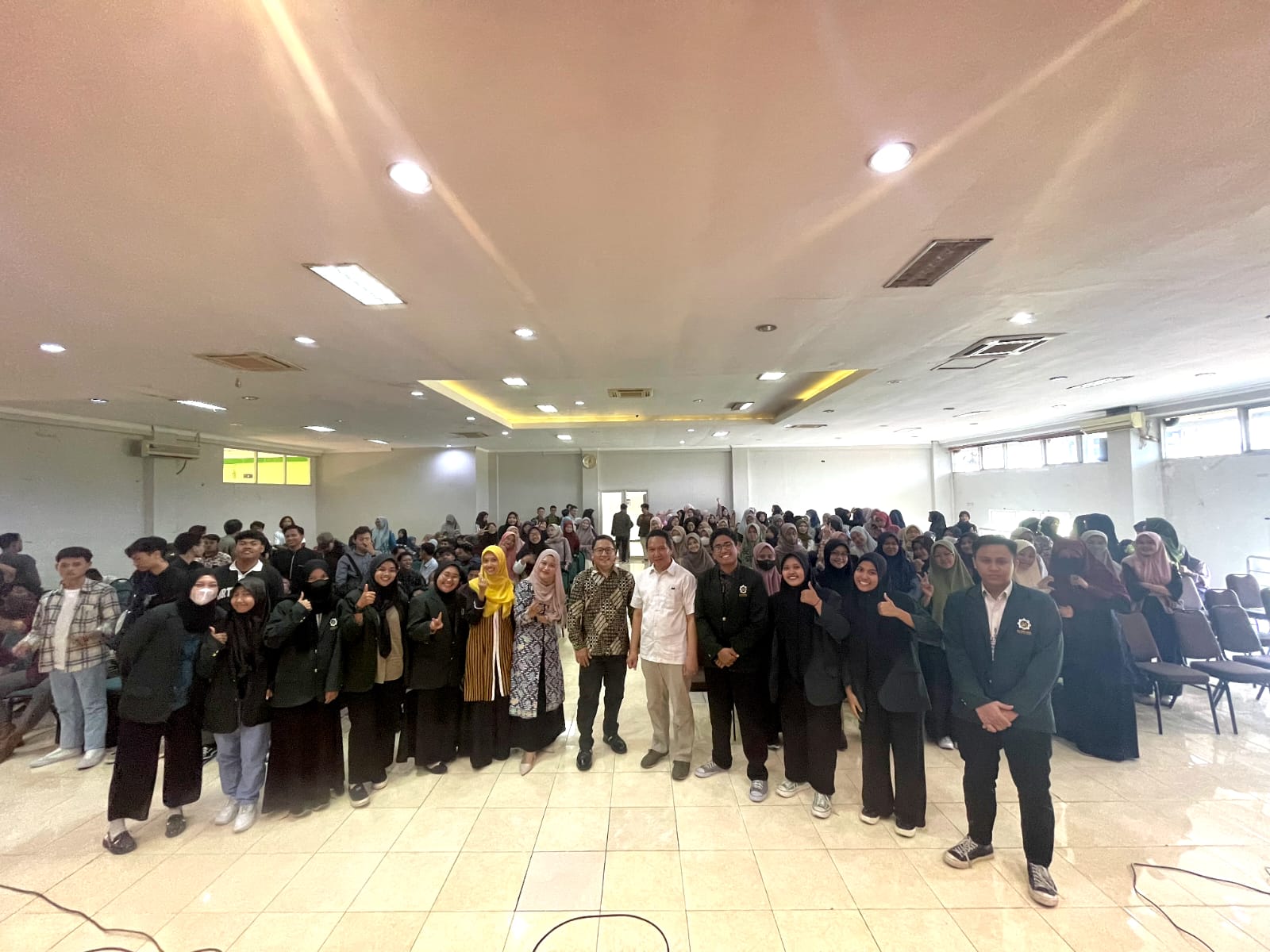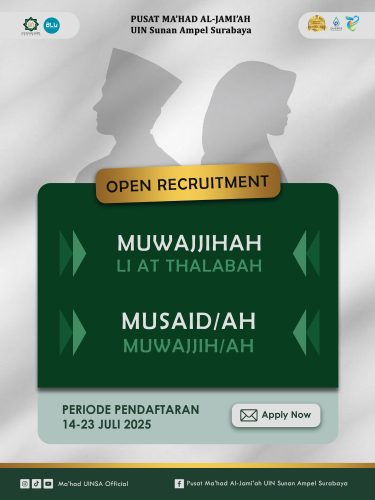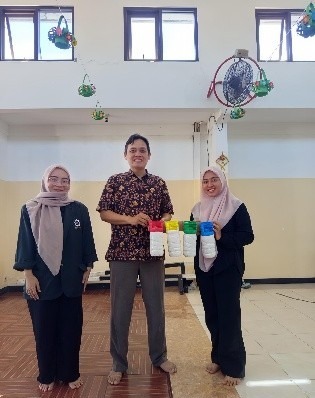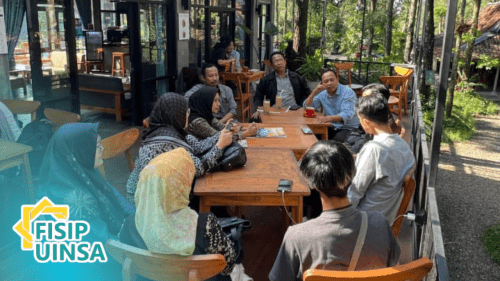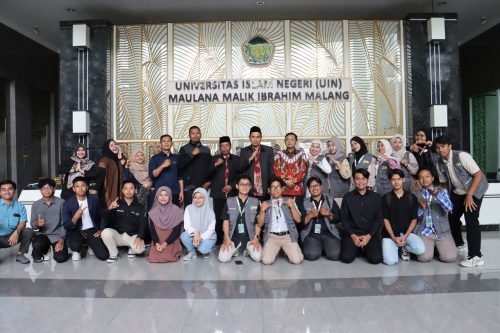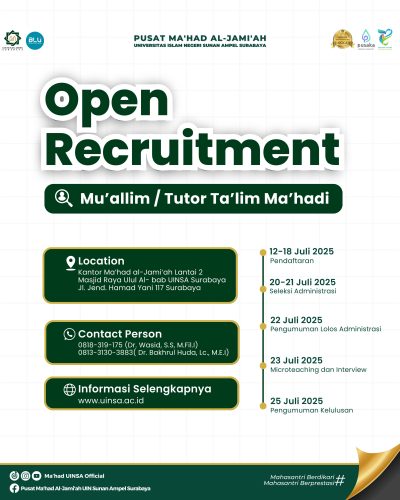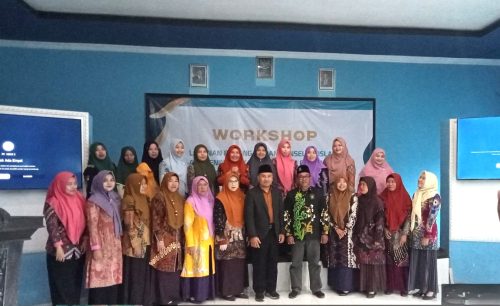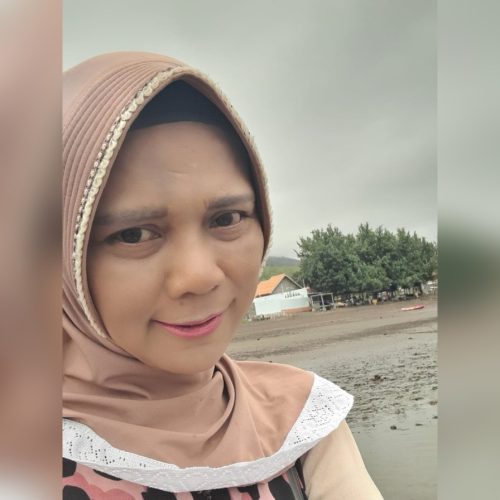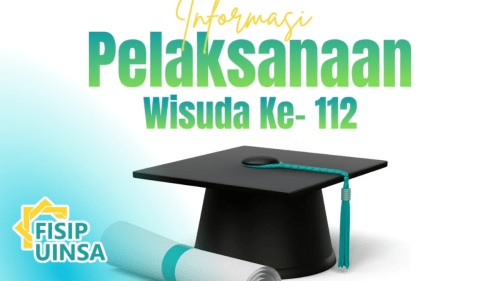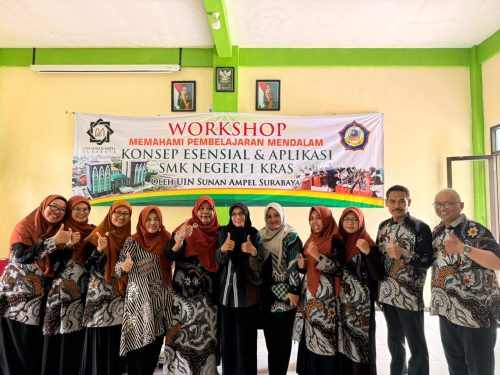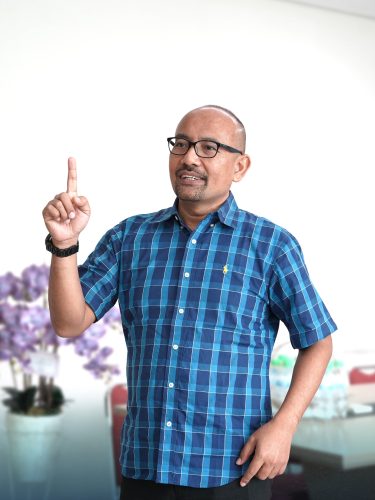On Tuesday (12/9), the Religious Studies Study Program of the Faculty of Ushuluddin and Philosophy of UIN Sunan Ampel Surabaya held a public lecture entitled Religion and Politics Towards the 2024 Presidential Election. This event invited guest speaker Dr. Abdul Gaffar Karim, M.A who is a lecturer and chairman of the Department of Politics and Government at Faculty of Social and Political Sciences UGM. The event was held from 9.00 to 12.00 in the Self Access Center (SAC) building on the 3rd floor and was attended by all SAA students.
Gaffar explained coherently and logically about religion and politics. According to him, religion cannot be separated from politics. “Religion was born from political power because of power relations (resources) between individuals,” he said.
Then, Gaffar also explains the relationship between religion and the state which is in three areas, namely, separated, inspired, and formalized areas. The separated area is the core argument of secularism, in which religion is an autonomous private area inherent in each individual. Gaffar also explained passive and assertive secularism.

Formalized means that it is incorporated into positive law, laws and regulations, or as the basis of the state. As for the inspirational or functional view, religion can play a function in building social order and maintaining value consensus.
Gaffar analyzed that religion in Indonesia belongs to the formalized area. Because religion must be a law, imposed, and pivoted on religion. However, this also leaves problems such as those that occur in parties (especially Islam) in Indonesia, namely the absence of ideology and unclear orientation.
This public lecture also aims to make students wise in responding to religious political issues. Moreover, 2024 is an election year with simultaneous elections. Related to this, Gaffar gave tips so as not to be consumed by these issues, one of which is to reject hoaxes.
The event was closed with a lively Q&A because Gaffar answered with stories and cases that have happened around us. In closing, Gaffar recalled his mother’s message which he made a moral point of life. “If you are desperate, you can eat pork. But, don’t eat public money, don’t be corrupt,” he said. (Ismi Malika Mufti – Student of Religious Studies Program)


